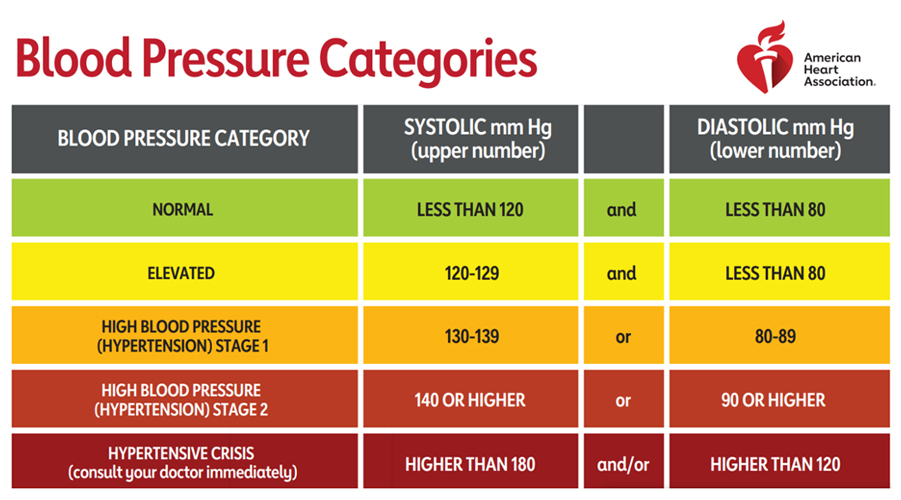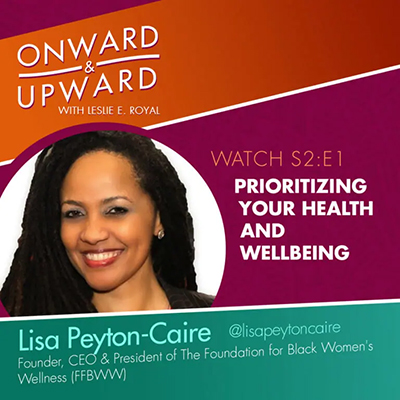Hypertensive Disorders of Pregnancy
- Key Takeaways
- What Is Blood Pressure?
- Can High Blood Pressure During Pregnancy Cause Complications?
- How Do I Know If I Have Hypertension?
- What Should I Do if I Have High Blood Pressure Before, During, or After Pregnancy?
- Long-term Effects of Hypertensive Disorders of Pregnancy
Key Takeaways
- “Hypertension” refers to high blood pressure. Hypertensive disorders of pregnancy (HDP) occur in 10% to 15% of pregnancies in the U.S.
- HDP includes several disorders that may affect you and your baby’s health.
- Continual blood pressure monitoring and low-dose aspirin can both help control HDP during and after pregnancy.
Hypertensive disorders of pregnancy (HDP) complicate 10–15% of pregnancies and remain a major health issue for women and infants in the U.S. High blood pressure is a significant cause of maternal and newborn illness (morbidity) and death (mortality).
The rate of hypertensive disorders in pregnancy in the U.S. has increased substantially over the last 20 years. The Centers for Disease Control and Prevention (CDC) reports that in 1993, 1 in 19 women hospitalized for delivery had some type of hypertensive disease. That rate increased to 1 in 10 in 2014. The largest increase (87%) was seen among African American women.
The rate of women who have hypertension before becoming pregnant has also increased from 0.65% in 1993 to 1.67% in 2014. This increase is largely due to the obesity epidemic and increasing maternal age. This trend is expected to continue.
Hypertensive disorders of pregnancy are classified according to whether or not the high blood pressure develops before, during, or after pregnancy (postpartum).
4 Types of Hypertensive Disorders of Pregnancy:
- Preeclampsia/eclampsia/HELLP syndrome
- Gestational hypertension
- Chronic hypertension
- Preeclampsia superimposed on chronic hypertension
What Is Blood Pressure?
The cardiovascular or circulatory system (CVS) is made up of arteries and veins. The arteries are thick-walled blood vessels that carry oxygen-rich blood from the heart to the rest of the body. Veins are thin-walled vessels that carry blood that is depleted of oxygen from other parts of the body back to the heart.
Once blood returns to the heart, it is carried to the lungs so it can pick up more oxygen to bring back to the organs and tissues. The organs and tissues then use the oxygen to power their activities, and the blood returns to the heart. The cycle then repeats. Each day, the average heart beats (expands and contracts) 100,000 times and pumps about 2,000 gallons of blood.
When the heart beats, it forces the blood into an artery. Blood pressure is a measurement of the force of the blood pushing against the artery’s wall.
Blood pressure has two numbers—for example, 110/75 mmHg. The first (top) number is the systolic blood pressure, or the force of the blood in the arteries when the heart is contracting. It is the higher number when the blood pressure is taken.
The second (bottom) number is the pressure against the artery walls when the heart relaxes (expands) between contractions. This lower number is called the diastolic blood pressure.
There are five blood pressure ranges recognized by the American Heart Association (AHA), as seen in their downloadable chart from the AHA website.
Your blood pressure is the amount of force your heart uses to push blood into your blood vessels when the heart contracts and when it relaxes.

Can High Blood Pressure During Pregnancy Cause Complications?
Yes, both you and your baby can be affected if you have hypertension in pregnancy.
You could experience:
- Preeclampsia—a condition that causes high blood pressure and excess protein in the urine (proteinuria).
- Stroke.
- The need for labor induction (giving medicine to start labor to give birth).
- Placental abruption (the placenta separating from the wall of the uterus).
Your baby could experience:
- Difficulty getting enough oxygen and nutrients to grow.
- Preterm (early) delivery.
- Low birth weight.
How Do I Know If I Have Hypertension?
The best way to know if you have hypertension is to be aware of your pre-pregnancy blood pressure. However, for many women, these are not known. Obtaining an at-home automated blood pressure machine is the best way to monitor your blood pressure at home. Devices that measure blood pressure in your upper arm (instead of your wrist) are more reflective of your true pressure. If you need to check your blood pressure right away and do not have a blood pressure machine at home, try going to your local pharmacy. Most pharmacies have a blood pressure machine available that is free to use.
Another complicating factor is that in early pregnancy, your blood pressure may drop to lower than normal levels. This is due to pregnancy-related changes in your body’s blood vessels. This means that you may have pre-pregnancy hypertension that doesn’t show up initially, making it difficult to diagnose.
In some cases, high blood pressure can be caused by white coat hypertension. This occurs in about 15% of people and is defined as elevated blood pressure primarily when you are with your health care providers. If it is suspected that this is causing your high blood pressure, monitoring your pressure at home can help confirm the diagnosis.
The use of a home blood pressure machine is an effective way of monitoring your blood pressure at home.
What Should I Do if I Have High Blood Pressure Before, During, or After Pregnancy?
If you have high blood pressure before becoming pregnant (chronic hypertension), you should:
- Plan for pregnancy
- Avoid all the activities you would normally avoid in pregnancy, such as consuming tobacco and alcohol. Most women will not be aware they are pregnant until at least halfway through their first trimester. Waiting for a positive pregnancy test before quitting harmful substances will expose your baby during the critical period of organ development.
- Start taking folic acid. Taking 400 mcg of folic acid supplements before becoming pregnant will reduce the risk of neural tube defects, such as spina bifida.
- Plan a prenatal visit with your (future) obstetrician.
- Talk with your doctor or health care team about:
- Any health problems.
- Any medicines you are taking. Certain medications need to be replaced by those that are safer in pregnancy.
- Ways to maintain a healthy weight, including healthy eating and regular physical activity.
If you are pregnant and have hypertension, you should:
- Get early and regular prenatal care.
- Try not to miss any appointments with your doctor or health care professional.
- Discuss your medications with your doctor to be certain that they are safe to take during pregnancy.
- Do not stop or start taking any type of medicine, including over-the-counter medicines, without first talking with your doctor.
- Keep track of your blood pressure at home (home monitoring). Record the results, date, and time taken.
- Contact your doctor if your blood pressure is higher than usual or if you have symptoms of preeclampsia.
- Talk to your doctor or insurance company about getting a home blood pressure monitor.
- Continue to choose healthy foods and maintain a healthy weight.
- Ask your doctor for weight gain recommendations during pregnancy.
After you give birth, you should continue to keep track of your blood pressure and how you are feeling. If you had high blood pressure during pregnancy, you have a higher risk for stroke and other problems after delivery. Tell your doctor or seek immediate medical care if you have symptoms of preeclampsia after delivery. You may need re-admission to the hospital for treatment of postpartum preeclampsia.
For women with hypertensive disease in pregnancy, regular prenatal care is key for the detection of disease progression.
Will I Need to Take Medicine During Pregnancy?
You may need to be on medication depending on how high your blood pressure gets. If it is very high, a blood pressure medicine that is safe during pregnancy will help to control it. Your provider may also talk with you about taking low-dose aspirin (LDA) during your second and third trimesters to decrease the risk of preeclampsia. You should only start aspirin therapy after discussing it with your doctor.
Are There Certain Things I Should Watch for if I Have High Blood Pressure During Pregnancy?
Many of the symptoms to be aware of are the same as in any pregnancy, such as:
- Your baby not moving as much as usual.
- Experiencing pain, bleeding, or early contractions.
You should also learn to recognize the signs of preeclampsia:
- A bad headache.
- Blurry vision.
- Pain in your upper abdomen.
- Excessive swelling.
Can I Have a Normal Vaginal Delivery?
The mode of delivery is an individualized decision made between you and your doctor. If your blood pressure is under control and there are no complications, your hypertension should not interfere with your ability to have a normal vaginal delivery.
What Will Happen After I Have My Baby?
After giving birth, your blood pressure will continue to be monitored. This is because blood pressure sometimes goes down soon after giving birth but then increases again. If this happens, you might have to restart your blood pressure medication or change the medicine you are taking. Frequent monitoring of your blood pressure is key.
Long-term Effects of Hypertensive Disorders of Pregnancy
Congratulations—you have put all that energy into caring for yourself and your baby during pregnancy! Let’s continue those habits for life.
Recent studies show that women who experience hypertensive disorders of pregnancy have up to a 63% increased risk of developing a cardiovascular condition later in life. These cardiovascular events include heart attacks and strokes. The study found that the increased risk of stroke continued even 30 years after delivery, and heart attack occurred as early as within the first ten years after the first pregnancy.
With these risks in mind, it is vital to carefully monitor indicators of increased cardiovascular risk, such as blood glucose, blood pressure, weight, and cholesterol levels. When asked about your medical health history, be sure to inform your doctor that you had high blood pressure during pregnancy. Most women neglect to mention this detail when no longer pregnant, even though it is still very relevant information.
Knowing this risk will go a long way in empowering you to make lifestyle changes to stave off these serious events. Speak with your doctor about ways you can reduce your risks from HDP well into your golden years.
Inform all your doctors you had hypertensive disease of pregnancy as part of your medical history—even after your pregnancy has ended. Steps can be taken to minimize your health risks.
Written by: Lisa Shephard, MD | Editor: Victoria Menard and Dayna Smith MD | Reviewed September 11, 2022 | Copyright myObMD. Media, LLC, 2022
References
- American College of Obstetricians and Gynecologists. Chronic hypertension in pregnancy. ACOG Practice Bulletin. 2019 Jan; 203.
- Kattah AG, Garovic VD. The management of hypertension in pregnancy.
- Adv Chronic Kidney Dis. 2013 May; 20(3):229–239. doi:10.1053/j.ackd.2013.01.014
- Hypertension in pregnancy. Report of the American College of Obstetricians and Gynecologists’ Task Force on Hypertension in Pregnancy. Obstetrics and Gynecology. 2013 Nov; 122(5). doi: 10.1097/01.AOG.0000437382.03963.88


